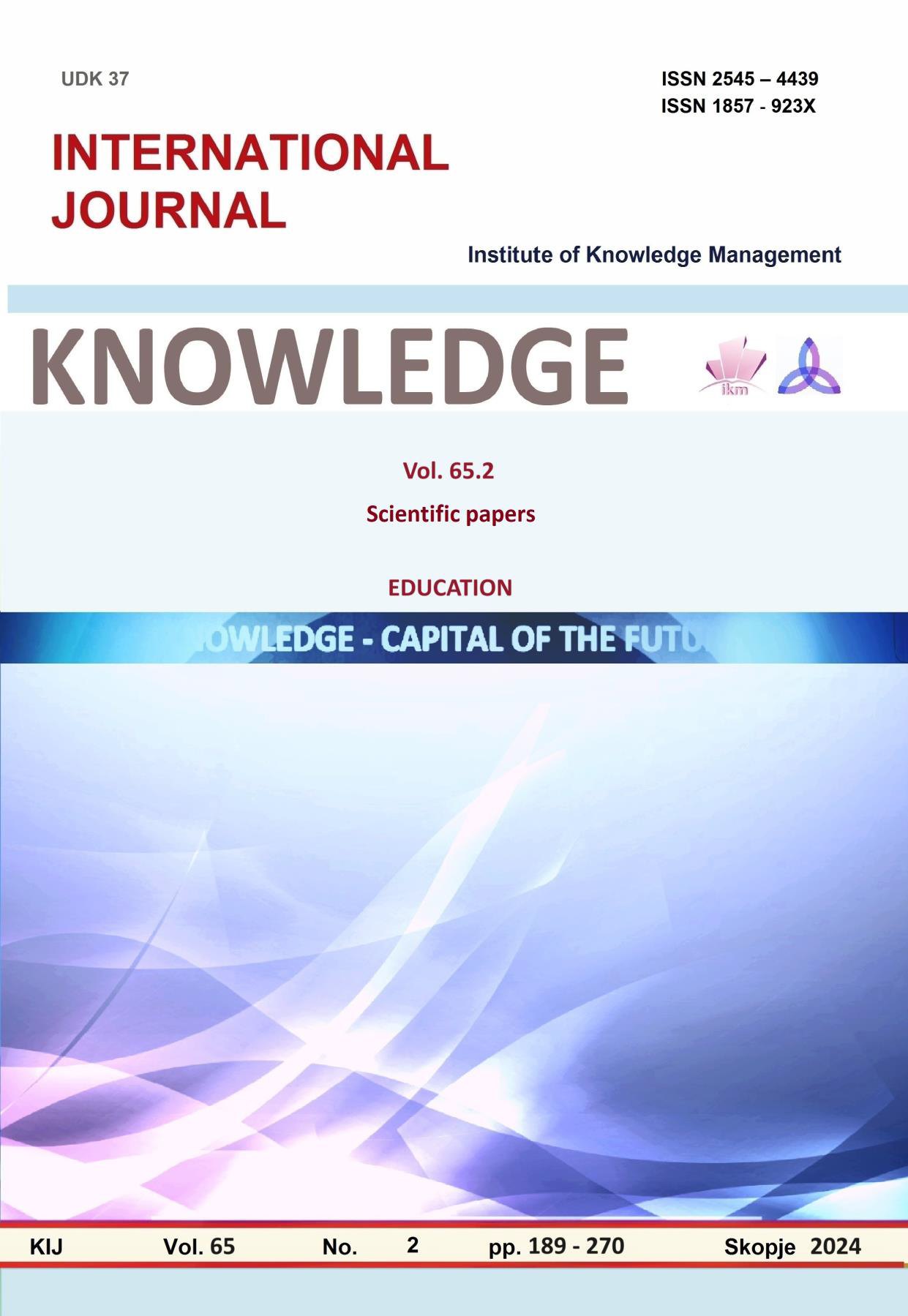ΠΑΡΑΓΟΝΤΕΣ ΠΟΥ ΕΠΙΡΕΑΖΟΥΝ ΤΗ ΣΥΜΠΕΡΙΛΗΨΗ ΜΑΘΗΤΩΝ ΜΕ ΝΟΗΤΙΚΗ ΑΝΑΠΗΡΙΑ ΣΕ ΣΧΟΛΕΙΑ ΤΗΣ ΤΥΠΙΚΗΣ ΔΕΥΤΕΡΟΒΑΘΜΙΑΣ ΕΚΠΑΙΔΕΥΣΗΣ ΣΤΗΝ ΕΛΛΑΔΑ»
FACTORS AFFECTING THE INCLUSION OF STUDENTS WITH INTELLECTUAL DISABILITIES IN MAINSTREAM SECONDARY SCHOOLS IN GREECE
Author(s): Kamataki ElisavetSubject(s): Social Sciences, Education, Inclusive Education / Inclusion
Published by: Scientific Institute of Management and Knowledge
Keywords: intellectual disability;inclusion;social skills;stigmatization;didactics of intervention
Summary/Abstract: This research focuses on the ways of teaching and social intervention that take place to secondary school students in Greece with mild intellectual disabilities, in order the inclusion in the typical schools of their neighborhood to be more effective. Its purpose is linked to intervention strategies that must be carried out at school and more broadly at social level. Regarding the methodology applied, the first intervention was to change the negative attitude of teachers towards students with mental disabilities.This attitude stems from the fact that a greater level of support and a variety of adaptive changes to the curriculum and classroom activities are required. These changes aim more at the professional and less at the academic training of the students, while emphasis was placed on the acquisition of basic skills, professional training and social interaction of the children through experiential learning and the interests of the students. Also, changes were attempted in the attitude of students in the typical class towards students with mild intellectual disabilities in order to eliminate prejudice and stigma and to achieve their inclusion. At the same time, interventions were carried out to inform the parents of students with mild mental disabilities, through counseling and guidance from specialist educators, psychologists and social workers, aiming at the development of their social skills required for the smooth integration of students into the school community. In the results we observed the acquisition of knowledge and basic skills through the provision of motivation and constant rewarding which, combined with assessment and feedback, led to the selection of the most appropriate teaching practices to promote learning. Furthermore, changing students' attitudes improved their adaptive behavior and readiness skills, where in combination with parental guidance, their social behavior and communication with their classmates was enhanced. Regarding the conclusions, emphasis was mainly placed on the clinical profile of the students, where the problems in cognitive development due to the intellectual disability were assessed. Subsequently, the most appropriate support strategy was chosen through the conceptual framing of the teaching content and through their psychological and social support by specialist scientists. Through these interventions we were led to the inclusion of all students in the typical class. Recommendations include enhancing social interaction, maintaining a regular routine to familiarize students with the learning environment, and removing isolation among students. Of course, additional evidence is needed from the following studies that lead students to embrace diversity, thus eliminating cases of stigmatization and isolation of students with mild intellectual disabilities
Journal: Knowledge - International Journal
- Issue Year: 65/2024
- Issue No: 2
- Page Range: 253-257
- Page Count: 5
- Language: Greek, Modern (1453-)

